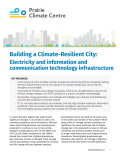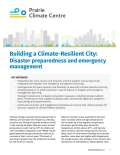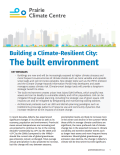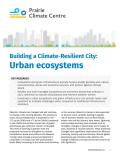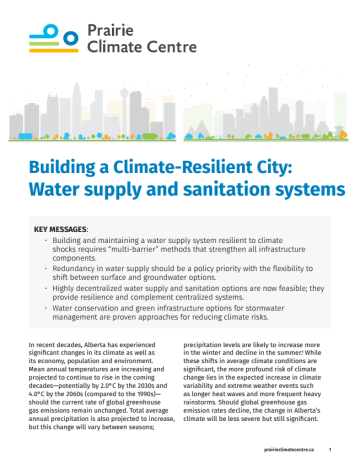
In recent decades, Alberta has experienced significant changes in its climate as well as its economy, population and environment. Mean annual temperatures are increasing and projected to continue to rise in the coming decades—potentially by 2.0°C by the 2030s and 4.0°C by the 2060s (compared to the 1990s) — should the current rate of global greenhouse gas emissions remain unchanged. Total average annual precipitation is also projected to increase, but this change will vary between seasons; precipitation levels are likely to increase more in the winter and decline in the summer.
While these shifts in average climate conditions are significant, the more profound risk of climate change lies in the expected increase in climate variability and extreme weather events such as longer heat waves and more frequent heavy rainstorms. Should global greenhouse gas emission rates decline, the change in Alberta’s climate will be less severe but still significant.

